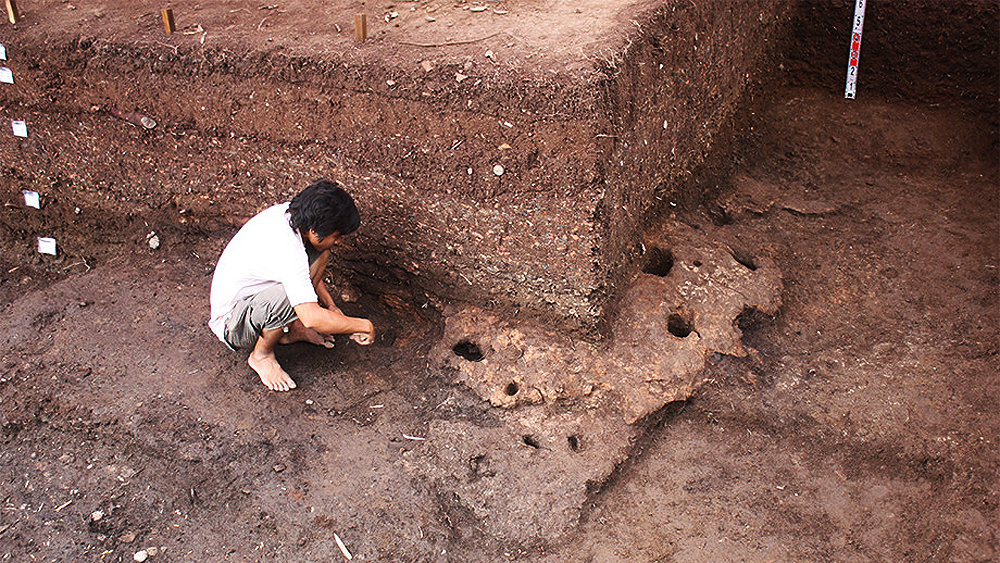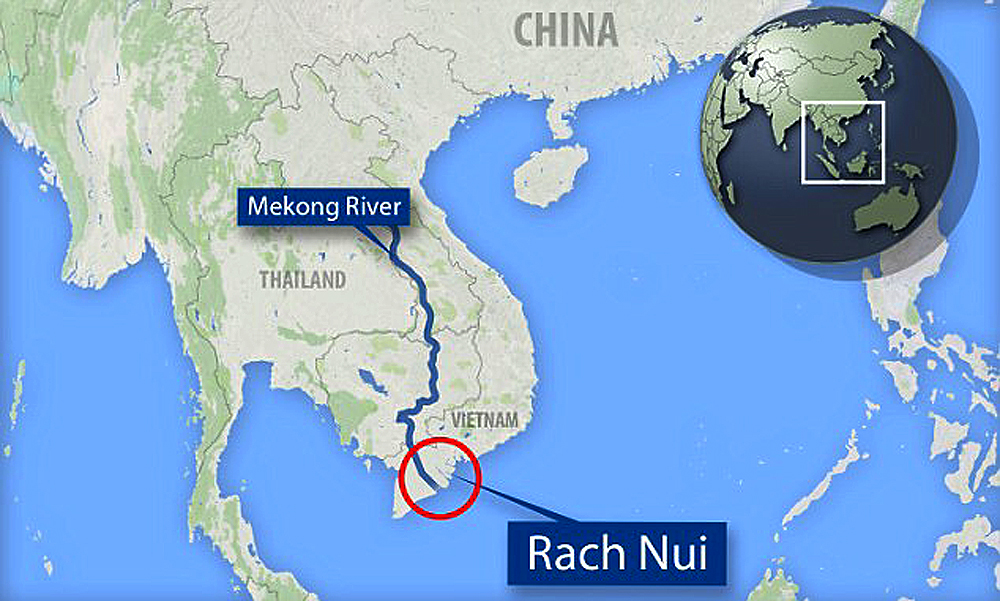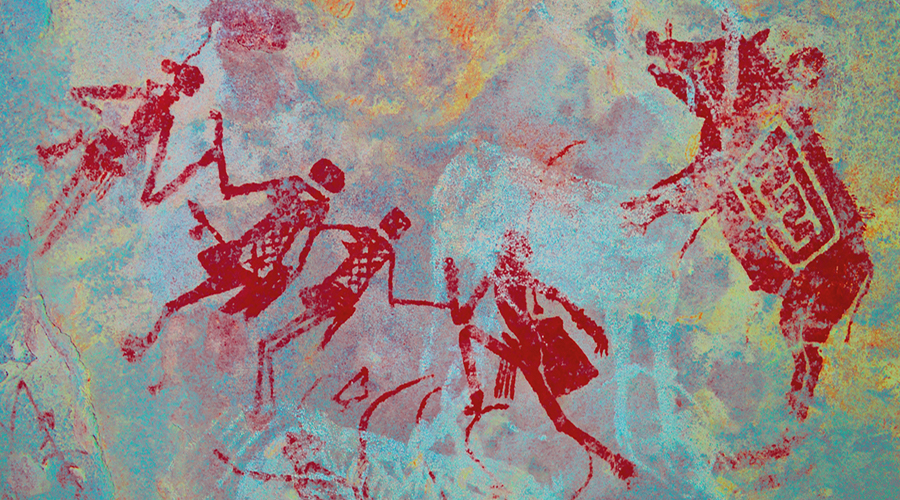


An article on phys.org - Archaeologists uncover ancient trading network in Vietnam - reports on the discovery by a team of archaeologists from the Australian National University (ANU) of a vast trading network which operated in Vietnam from around 4,500 years ago up until around 3,000 years ago.

The excavation site at Rach Nui in Southern Vietnam. Image: ANU
A new study, led by researcher Dr Catherine J. Frieman of the ANU School of Archaeology and Anthropology, shows a number of settlements along the Mekong Delta region of Southern Vietnam were part of a significant network where large volumes of items were manufactured and circulated over hundreds of kilometres. She states that this greatly changes what was known about early Vietnamese culture, and the study proves the existence of a major trade network that also included specialist tool-makers and technological knowledge.
The discovery was made after Dr Frieman, an expert in ancient stone tools, was brought in to look at a collection of stone items found by researchers at a site called Rach Nui in Southern Vietnam.
Archaeologists discover ancient trade network in Vietnam https://t.co/dbjycxspD5 #RachNui #archaeology #anthropology #Neolithic pic.twitter.com/HUFOUbiokJ
— Bradshaw Foundation (@BradshawFND) August 21, 2017
A stone grinding tool found at Rach Nui in Southern Vietnam. Image: ANU
Dr Frieman found a sandstone grinding stone used to make tools such as axe heads out of stone believed to come from a quarry located over 80 kilometres away in the upper reaches of the Dong Nai River valley. Because the Rach Nui region had no stone resources, people must have been importing the stone and working it to produce the artefacts.
Dr Phillip Piper, also of the ANU School of Archaeology and Anthropology, specialises in Vietnamese archaeology and is currently working to map the transition from hunting and gathering to farming across Southeast Asia. In light of this, he states that Vietnam has an amazing archaeological record with a number of settlements and sites that provide significant information on the complex pathways from foraging to farming in the region.

Rach Nui in Southern Vietnam. Map: dailymail.co.uk
In southern Vietnam, there are numerous archaeological sites of the Neolithic period that are relatively close together, and that demonstrate considerable variation in material culture, methods of settlement construction and subsistence. This suggests that communities that established settlements along the various tributaries and on the coast during this period rapidly developed their own social, cultural and economic trajectories. Various complex trading networks emerged between these communities, some of which resulted in the movements of materials and manufacturing ideas over quite long distances.
The research has been published the journal Antiquity.
by Bradshaw Foundation
Monday 04 December 2023
by Bradshaw Foundation
Friday 30 June 2023
by Bradshaw Foundation
Thursday 06 April 2023
by Bradshaw Foundation
Thursday 24 November 2022
by Bradshaw Foundation
Tuesday 27 September 2022
by Bradshaw Foundation
Thursday 08 September 2022
by Bradshaw Foundation
Tuesday 19 July 2022
by Bradshaw Foundation
Monday 06 June 2022
by Bradshaw Foundation
Friday 11 March 2022
by Bradshaw Foundation
Wednesday 02 March 2022
by Bradshaw Foundation
Thursday 26 August 2021
by Bradshaw Foundation
Monday 16 August 2021
by Bradshaw Foundation
Tuesday 06 July 2021
by Bradshaw Foundation
Thursday 06 May 2021
by Bradshaw Foundation
Thursday 06 May 2021
by Bradshaw Foundation
Tuesday 16 March 2021
by Bradshaw Foundation
Monday 04 December 2023
by Bradshaw Foundation
Friday 30 June 2023
by Bradshaw Foundation
Thursday 06 April 2023
by Bradshaw Foundation
Thursday 24 November 2022
by Bradshaw Foundation
Tuesday 27 September 2022
by Bradshaw Foundation
Thursday 08 September 2022
by Bradshaw Foundation
Tuesday 19 July 2022
by Bradshaw Foundation
Monday 06 June 2022
by Bradshaw Foundation
Friday 11 March 2022
by Bradshaw Foundation
Wednesday 02 March 2022
by Bradshaw Foundation
Thursday 26 August 2021
by Bradshaw Foundation
Monday 16 August 2021
by Bradshaw Foundation
Tuesday 06 July 2021
by Bradshaw Foundation
Thursday 06 May 2021
by Bradshaw Foundation
Thursday 06 May 2021
by Bradshaw Foundation
Tuesday 16 March 2021
Friend of the Foundation











